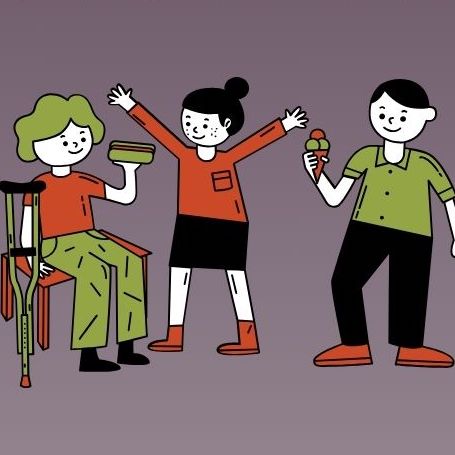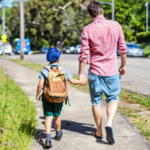Home > Our Blog

Welcome to the South Southwest MHTTC Collaborative Conversations, the hub for our podcast and blog, where we strive to promote effective, evidence-based practices in mental health promotion, prevention, treatment, and recovery support.
As mental health professionals, we understand the importance of staying up-to-date with the latest research, tools, resources, and policy developments to provide high-quality care to our clients. Our goal is to share our expertise and resources with fellow practitioners, organizations, and systems to build their capacity and enhance their ability to deliver effective, evidence-based services.
Whether you're a mental health provider, community organization, or policy maker, we believe everyone has a role in creating a more equitable and accessible mental health system. Join us as we work towards creating a more effective and responsive mental health workforce.
There is a great deal of discussion in human service organizations about the need to create authentic and sustainable trauma-informed cultures. Aspiring to develop a truly person-centered culture is no small task. It must address the realities of trauma while also tending to the unique needs of leaders responsible for the organization. The challenge to leaders does not go unnoticed. If you find yourself wanting to dive deeper into the issue of workplace culture and trauma, join us!

Raven Garza (she/they)
In honor of Women's History Month, we're highlighting women who made strides in the mental health field, improved care for marginalized communities, and advocated for themselves— all while facing established forces that tried to misinterpret or discredit them. Read more >>

Raven Garza (she/they)
To better serve people with developmental disabilities, it’s important to recognize and address their unique needs to ensure they receive equitable and effective care. Here's a list of best practices for mental health professionals who work with this population. Read more >>

Raven Garza (she/they)
We’ve compiled a list of resources to help mental health professionals better support folks in the Black community, including materials you can share with people seeking more research or education. Read more >>

Raven Garza (she/they)
Over half of youth ages 13-17 have been cyberbullied in their lifetime, and that number has steadily increased in recent years. In this post, we'll share key insights from a recent session by Dr. Sameer Hinduja. Read more >>

Raven Garza (she/they)
Have you heard of our free Youth and Young Adult Peer Support Training? Check out the training’s format, what you can expect to learn, and some helpful resources to continue exploring youth peer support. Read more >>

Raven Garza (she/they)
We’re excited to kick off the second season of Talking Beyond Trauma with Mordecai Dixon and Dr. Natalie Fikac. Listen to the first episode and check out a few snippets from their insightful conversation. Read more >>

Raven Garza (she/they)
Do you want to add professional learning goals to your 2024 plan? Here are key tips on creating realistic goals, self-care practices to support your progress, and educational resources from our team. Read more >>

Raven Garza (she/they)
Up to 16 million Americans struggle with seasonal affective disorder (SAD) each year. Here's what you should know about seasonal depression and how to support students. Read more >>

Raven Garza (she/they)
November marks Thanksgiving for many, a time for gratitude and family gatherings. Yet, for Indigenous communities, it serves as a reminder of enduring oppression and discrimination. Read more >>

Grace Cruse (she/they)
Positionality refers to the social positions we hold in our society that influence how we interact with the world. By reflecting on our positionality, we can begin to create change within ourselves, our communities, and our institutions. Read more >>

Kendall Jones (she/her)
Halloween is a time for haunted houses, costumes, and pumpkins, but for many, it can also bring about feelings of anxiety. In this article, we’ll dive into ways to manage Halloween-related anxiety while promoting an environment that prioritizes self-care. Read more >>

Grace Cruse; Samantha J. Reznik, PhD; Margaret Duvall; Oladunni Oluwoye, PhD; Eleanor Longden, PhD; Mx. Yaffa, AS
Positionality is the recognition of the social positions we occupy in society, such as race, class, gender, and more, which shape our interactions with the world. Read more >>

Dr. Natalie Fikac (she/her)
The start of a school year offers a chance for new experiences and practices. Establishing consistent routines at home, like morning and bedtime rituals, can promote a sense of calm and reduce anxiety. Read more >>

Grace Cruse (she/her/they/them)
July is recognized as Black, Indigenous, People of Color (BIPOC) mental health awareness month. To commemorate this month, we have compiled a list of resources for BIPOC individuals, practitioners, and allies. Read more >>

Grace Cruse (she/her/they/them)
Although the recent collective push for LGBTQ+ understanding has made it more possible for many people to be their authentic selves and find support, there's still room for growth as a society. Read more >>

Holly Gursslin M.Ed, NCC, LPC (she/her) and Amanda Boquist, MA (she/her)
The first few years of life are crucial for social-emotional development, as it sets the stage for future physical, cognitive, and emotional health. Studies show that nurturing relationships and environments are the best way to support a child's growth during this period when more than 1 million neural connections are formed every second. Read more >>

Jessi Davis (she/they
When it comes to supporting our staff, we need to recognize that burnout is often caused by external pressures, rather than internal regulation issues. This means there is little that the staff can do to address the situation. Read more >>